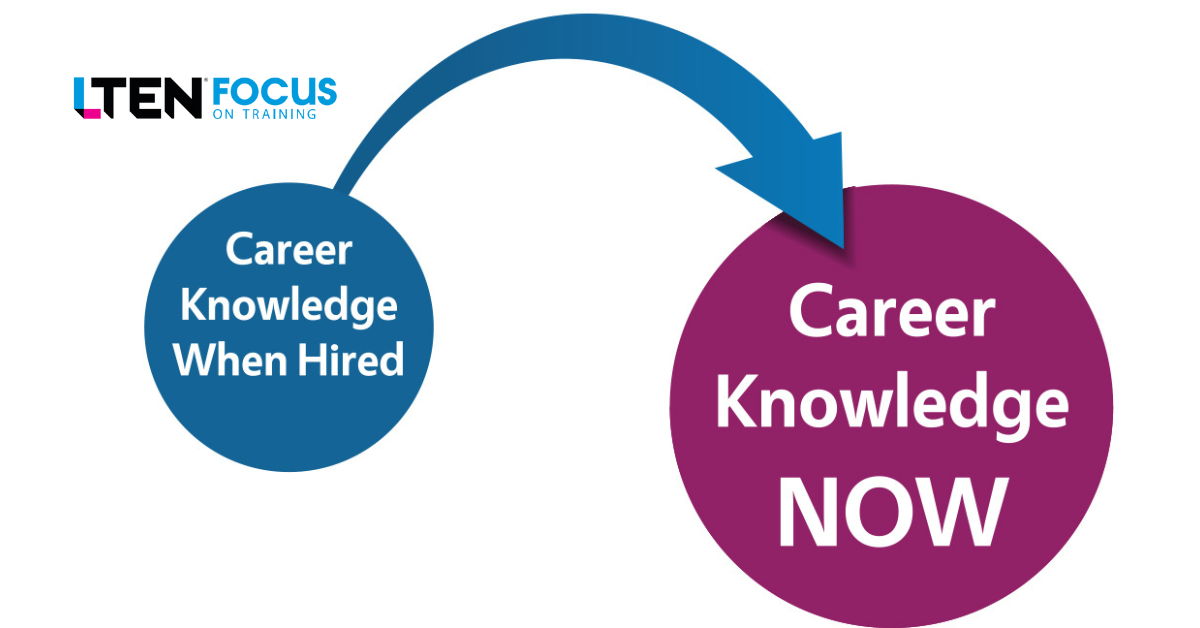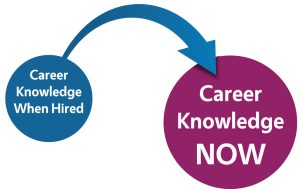
You need to try things just a little outside of your circle
Solutions – Krishna C. Kalva
 I want to share a conversation I had some years ago when I first started my career. My mentor back then shared an analogy that stayed with me all these years.
I want to share a conversation I had some years ago when I first started my career. My mentor back then shared an analogy that stayed with me all these years.
He said, “Now that you have learned the basics, imagine a circle. Inside are all the skills that are required to perform your daily job.
“For the circle to grow, you need to try things that are just a little outside of the circle. The trick is to slowly grow the circle over time and not to attempt something that is far beyond your current skills and capabilities. “Over time you will notice that the circle significantly grows, offering you a toolbox of skills to choose from and apply according to the situation or the topic at hand.”
This concept can be applied to any field that we operate in, and we start to notice how the circle grows over time when compared to when we first started. Did you ever imagine having a circle for yourself that offers you an understanding and a platform to grow your skills over time?
Pushing Farther
I once worked on a very interesting but complex project for an organization. The goal was to review sales data and perform deductive analysis to better understand the customers and their buying patterns. The expectation was to derive insights that could help the organization to define or adapt strategies to successfully enhance the business.
We had large amounts of data at our disposal that created an opportunity to slice and dice information into various categories. For example, buying time and location, preferred products, price range, etc.
I played an integral part in reviewing and understanding the data and offering guidance to my team, helping them develop insights for leadership. In order to successfully execute the analysis, we required skills like attention to detail, datamining and creative visualization.
Though I didn’t have all the skills and qualifications required to perform the job, I could rely on my diverse experiential background and the trust I built with my stakeholders, and I was given the job to drive the topic. I knew I was pushing myself a bit too far outside of my current circle of skills; however, I went with the gut feeling and intention that I could be successful.
It was a challenging topic, and the outcomes were not exactly what I had hoped for. In the end, a former colleague of mine who worked on similar data projects came onboard to successfully collaborate with the team and achieved the desired results for the organization.
Perspective & Awareness
It was a pivotal moment in my career, and it helped me reflect about my current circle of skills. I came to the realization that though I had created a toolbox of skills for myself, going too far beyond my circle didn’t allow me to perform to the best of my abilities.
My self-reflection offered me perspective and the awareness to understand that skills developed over time through experience and the outcomes generated through the application of learned skills are interconnected. They go together and help us – through coaching and feedback – to develop the confidence, mindset and attitude to achieve the desired results.
As we develop the mindset and attitude, we become unafraid about failure by being able to appropriately respond to any situation at hand. It is through the awareness of a given situation that we adapt ourselves and elevate the experiences we create.
Putting this into perspective, the outcomes of an elevated experience often have a ripple effect on the organization and its people. Experiences are elevated when people involved can remain authentic and are allowed to freely express themselves. Elevated experiences can be transformed into success stories through active engagement and communication.
Conclusion
Let me take your attention back to the original idea, circle of skills. The circle of skills can also be interpreted as a circle of understanding. The more time we spend to understand the nature of our mind, the more we understand the stories we create by being present in the moment without having any preconceived labels.
Once we understand everything that is inside of our circle, we create awareness for ourselves, about our reality and the relationship we have toward it. Through awareness, our reality becomes the guiding factor helping us grow our circle of skills in both personal and professional lives.
 Krishna C. Kalva is learning solution manager at Siemens Healthineers. Email him at krishnachaitanya.kalva@siemens-healthineers.com.
Krishna C. Kalva is learning solution manager at Siemens Healthineers. Email him at krishnachaitanya.kalva@siemens-healthineers.com.








